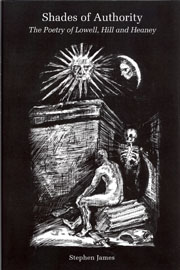The Burden of Power
from Essays on Robert Lowell
Summary
It sometimes seems that Robert Lowell's most vigorous advocates do his reputation more harm than good. ‘Lowell is the real thing, a giant of a poet […] a writer who restored poetry to its public role’, claimed Grey Gowrie in his review of the Collected Poems (2003) for The Spectator. Tom Paulin's Observer review also presented Lowell as a literary colossus, with its judgement that the ‘gigantic nature of his talent must be celebrated – he was fascinated by Napoleon and, like Napoleon, he remains heroic and magnificent’. More exorbitant still was Michael Hofmann's verdict on the poet's achievement in an essay for the London Review of Books: ‘by comparison with him, other poets don't use language, don't write about the world […] in his absence, literary and civic life have both deteriorated’. Admittedly, these are rather far-fetched examples of the kind of adulation that Lowell's work at times inspires, but they are instructive in highlighting the way in which the qualities for which he is often praised convey the regrettable impression that his work fulfils a conception of poetry long since outmoded. Casting one's eye over the mostly highly favourable estimations of Lowell's oeuvre in the newspaper and journal reviews (there are, of course, some voices of dissent), it is hard not to notice the discrepancy between the insistent trumpeting of Lowell as irrefutably ‘major’ by his champions and the frequent laments for his fading star.
- Type
- Chapter
- Information
- Shades of AuthorityThe Poetry of Lowell, Hill and Heaney, pp. 9 - 28Publisher: Liverpool University PressPrint publication year: 2007

